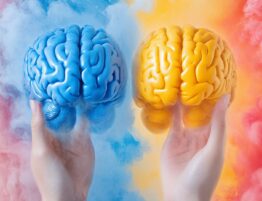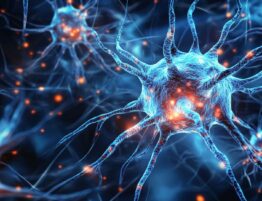Neurological and cardiac health are the most critical aspects, because quality of our life depends on our health. The heart and brain rely on a steady, uninterrupted flow of oxygenated blood. It helps to maintain their functions. The heart pumps blood through the arteries. It fully ensures the brain’s normal functioning. This enables the brain to carry out complex tasks, including thinking, memory, and coordination. When blood flow is compromised due to blocked arteries or weakened heart function, the brain suffers significantly.
This connection makes it clear why cardiovascular health is crucial for physical vitality. It is also essential for maintaining cognitive abilities. You must understand the link between cardiovascular and neurological health. It can help in preventing severe conditions. Proactively managing cardiovascular health happens by adopting positive lifestyle habits. It can significantly reduce the risk of neurological impairments. This approach ensures the heart and brain function optimally over time.
How Circulation Impacts Brain Health
Blood flow is crucial in maintaining brain health by delivering oxygen and essential nutrients to the cells. The brain requires continuous oxygenated blood. This performs its complex functions. They range from thinking and memory to coordination and decision-making. The brain operates efficiently and remains healthy. It happens when blood flow is optimal.
However, this process can be disrupted when cardiovascular health is compromised. It leads to significant neurological issues. Some conditions can reduce blood flow to the brain, including atherosclerosis, clogged arteries, and high blood pressure. These conditions can lead to various complications.
There are a few examples of poor cardiovascular health. They can affect the brain:
- Vascular disease: Reduced blood flow occurs due to chronic high pressure or clogged arteries. It can damage brain tissue over time. This leads to memory loss.
- Transient ischemic attack (TIA): This condition is commonly known as a “mini-stroke.” TIAs occur when there is a temporary blockage in the blood vessels. It causes temporary neurological symptoms.
- Stroke: Blocked or ruptured vessels prevent blood from reaching parts of the brain. They cause its cells to die and lead to long-term impairments.
- Dementia: Insufficient blood flow to the brain can impair memory. It also worsens cognitive function. They lead to early signs of dementia.
Maintaining healthy blood flow and addressing cardiovascular issues early is crucial. It can help to protect brain health. These measures prevent these devastating conditions.
Stroke as a Critical Cardiovascular-Neurological Event
A stroke is a prime example of how compromised blood flows. It can directly impact the neurological system. A stroke occurs when blood flow to the brain is blocked. It also happens when a vessel bursts. This deprives cells of the oxygen and nutrients they need to function correctly. The lack of blood flow causes brain tissue to deteriorate rapidly. It leads to cognitive and physical consequences.
The severity of a stroke depends on the area of the brain affected. The extent of the disruption in blood flow also impacts it:
- Paralysis or Weakness: This condition happens on one side of the body. It depends on the hemisphere affected.
- Memory Loss: These conditions appear very often. It happens especially if the stroke impacts areas responsible for learning and memory.
- Speech and Language Difficulties: They include trouble speaking. Some individuals have difficulty understanding speech.
- Emotional Changes: Some individuals face depression or sudden mood swings. These changes appear because of brain damage.
- Vision Problems: They are partial or complete loss of sight. It happens in one or both eyes.
Preventing a stroke through maintaining good circulation is essential. Early intervention and treatment are crucial. They minimize brain damage. Such measures also improve recovery chances.
Vascular Disease and Cognitive Decline
Atherosclerosis occurs when the arteries become narrowed or blocked due to plaque buildup. Such a reduced blood flow affects the brain. It can lead to gradual dementia. Over time, insufficient blood flow deprives brain cells of vital oxygen and nutrients. It impairs memory and attention. This condition can contribute to the development of vascular dementia. This is a type of cognitive impairment that is linked to vascular disease.
There are early warning signs of dementia caused by vascular disease:
- Memory Loss: This sign includes especially short-term memory. It also involves difficulty recalling recent events.
- Difficulty Concentrating: Some individuals also face complex conversations.
- Confusion and Disorientation: These signs appear particularly in familiar settings.
- Slower Processing of Information: Individuals face struggling with decision-making.
- Mood Changes: These signs include irritability or depression.
Let’s discuss preventative strategies to protect brain health:
- Maintaining a Healthy Diet: People should eat more fruits, vegetables, and whole grains. This diet helps to prevent plaque buildup.
- Regular Physical Activity: This measure helps to improve circulation and heart health.
- Managing Blood Pressure and Cholesterol Levels: This is important. It reduces the risk of atherosclerosis.
- Avoiding Smoking: Individuals also must avoid excessive alcohol consumption. This measure will help to protect arterial health.
Individuals must address vascular disease early. We can reduce the risk of cognitive decline. Individuals also will protect long-term brain healthcare.
Preventing Cardiovascular Issues for a Healthy Brain
Maintaining optimal cardiovascular health is essential for supporting the brain. It also reduces the risk of neurological issues. A healthy system ensures adequate blood flow. It delivers oxygen and nutrients to the brain. There are several actionable steps. They will improve brain and cardiovascular health:
- Adopt a Heart-Healthy Diet: Focus on nutrient-dense foods. They include fruits, vegetables, and whole grains. Such a diet also involves lean proteins and healthy fats. They are omega-3 fatty acids. Reduce intake of processed foods and refined sugars. Avoid unhealthy fats like trans ones. They can contribute to plaque buildup and hinder proper circulation.
- Engage in Regular Exercise: Physical activity helps strengthen the heart. It also reduces blood pressure. Aim for at least 150 minutes of moderate-intensity exercise. These are walking, swimming, or cycling. Exercise each week. Exercise also releases endorphins. They can improve mood and reduce stress.
- Manage Stress Effectively: Chronic stress can elevate blood pressure. It negatively impacts brain health. Practice stress-reducing techniques. They are mindfulness meditation, deep breathing exercises, or yoga. These techniques help lower cortisol levels. They also improve overall well-being.
- Quit Smoking and Limit Alcohol Intake: Smoking damages blood vessels. It also reduces circulation. Excessive alcohol consumption can increase the risk of high blood pressure. Quitting smoking and moderating alcohol intake is important. It can significantly improve heart and brain health.
You must incorporate these lifestyle changes. So you can enhance blood flow and reduce the risk of stroke. You will also promote long-term cardiovascular health. Prioritizing it today will pay dividends for your cognitive function tomorrow.
The Role of Regular Check-Ups in Brain and Heart Health
Regular medical check-ups safeguard health and maintain optimal neurological health. Here’s why:
- Early Detection of Hypertension: Regular blood pressure monitoring helps identify it early. Hypertension is a leading risk factor for strokes. This may also cause other neurological complications.
- Cholesterol Management: Routine blood tests can detect its high levels. They, if unmanaged, may lead to blocked arteries. Such tests also can cause reduced blood flow to the brain and heart.
- Stroke Prevention: Early identification of cardiovascular issues is crucial. It significantly reduces the risk of severe neurological health. The most common are strokes.
- Monitoring Neurological Health: Check-ups can detect early signs of memory loss. They identify balance issues or other subtle signs of potential brain disorders.
- Personalized Health Plans: Consistent evaluations allow healthcare providers to create tailored plans. They help to improve overall well-being and address specific risks.
Regular medical check-ups are a proactive way to ensure normal neurological function. They empower individuals to prevent severe conditions and enjoy a healthier future.
Future Research on Cardiovascular and Neurological Connections
Advancements in medical research are uncovering critical links. They are between cardiovascular and neurological health. Such advancements offer new hope for preventing and treating conditions. The most widespread are strokes and dementia. How is future research shaping this field? Let’s explore:
- Emerging Technologies for Detection: Innovative imaging techniques include advanced MRI and PET scans. They allow earlier identification of vascular disease and its effects on the brain.
- Personalized Medicine: Genomic research enables customized treatments. They suit individuals at high risk of cardiovascular and neurological impairments. These treatments target specific genetic markers.
- Improved Stroke Treatments: These techniques include breakthroughs in clot-retrieval devices and neuroprotective drugs. They are improving recovery rates for stroke patients. These treatments minimize brain damage.
- Focus on Microvascular Health: Research explores the role of small blood vessels in vascular disease. They also examine their impact on brain aging and dementia.
- Non-Invasive Therapies: They include transcranial magnetic stimulation and focused ultrasound. These therapies show promise in addressing neurological deficits. They are linked to poor cardiovascular health.
- Lifestyle Intervention Studies: They evaluate the combined effects of diet, exercise, and medication. These approaches improve outcomes for people with vascular disease and brain function.
These advancements highlight the interconnected nature of the heart and brain. They pave the way for integrated approaches. To learn more about how these advancements might benefit you, consider scheduling a consultation with a healthcare provider.













Please, leave your review
Write a comment: